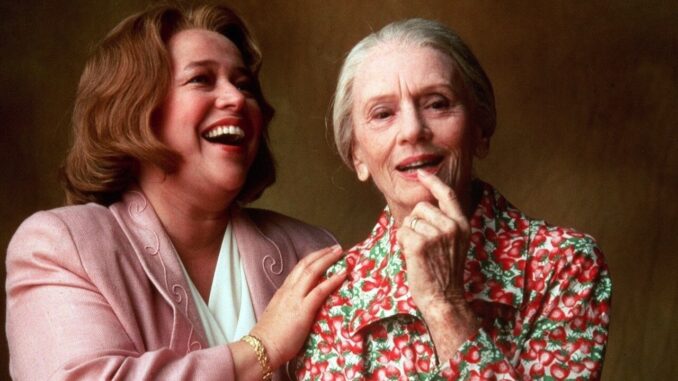
Ninny Threadgoode: The Heart of Fried Green Tomatoes
Ninny Threadgoode, a central character in the beloved film Fried Green Tomatoes (1991), is more than just a charming elderly storyteller. Her character is rich with complexities that delve into themes of identity, memory, and the connection between past and present. Here’s a deep dive into Ninny’s character that explores everything you might not know.
1. The Storyteller as a Bridge Between Generations
Ninny Threadgoode isn’t merely a narrator; she serves as a bridge between different generations. Through her vivid stories, she connects Evelyn Couch—a woman struggling with her own identity—to the vibrant and tumultuous lives of the residents of Whistle Stop, Alabama. Ninny’s tales empower Evelyn to rediscover herself, symbolizing the timeless power of oral history and personal narratives. These stories transcend time, offering valuable lessons from the past that resonate with contemporary life.
2. The Mystery of Ninny’s Identity
One of the most intriguing aspects of Ninny’s character is the ambiguity surrounding her true identity. Many fans speculate whether Ninny might actually be Idgie Threadgoode in disguise. The film intentionally leaves this question unanswered, fueling debates and theories among its audience. If Ninny is indeed Idgie, her stories become more than just recollections—they transform into reflections on her own life, filled with the wisdom of age and the bittersweet memories of love and loss. This open-ended identity invites viewers to ponder the fluid nature of selfhood and how we reconstruct our histories over time.
3. Themes of Resilience and Redemption
Ninny’s stories aren’t just about the past; they embody themes of survival, resilience, and redemption. Through the lives of Idgie and Ruth, Ninny illustrates the strength of women who defy societal norms and create meaningful lives despite the odds. Her narrative also underscores the possibility of redemption, showing that even the most broken souls can find peace and purpose. Ninny herself, living in a nursing home yet full of vitality through her stories, is a testament to the indomitable human spirit—aging but not diminished.
4. The Power of Memory
Ninny represents the theme of memory as a powerful force that shapes identity and relationships. Her stories are colored with nostalgia but grounded in truth. Memory, as depicted by Ninny, is selective yet expansive, capturing the essence of experiences rather than just the facts. This portrayal challenges the audience to reflect on how their own memories influence their understanding of themselves and their place in the world.
5. Jessica Tandy’s Masterful Portrayal
Jessica Tandy’s portrayal of Ninny Threadgoode is nothing short of extraordinary. She brings a quiet strength and warmth to the character, making Ninny both approachable and enigmatic. Tandy’s performance grounds Ninny’s fantastical stories in real emotion, making her a beloved and authentic figure in the film. Ninny, as played by Tandy, is not just a storyteller—she is a living repository of wisdom, embodying the spirit of a generation that witnessed profound societal changes.

6. Ninny as a Symbol of the American South
Ninny Threadgoode symbolizes the legacy of the Southern United States, capturing its complexities, contradictions, and enduring charm. Through her stories, the film explores themes of race, gender, and the shifting social landscape of the South. Ninny’s character serves as a lens for the audience to explore these themes, making her an essential part of the film’s broader commentary on American history and culture.

Leave a Reply